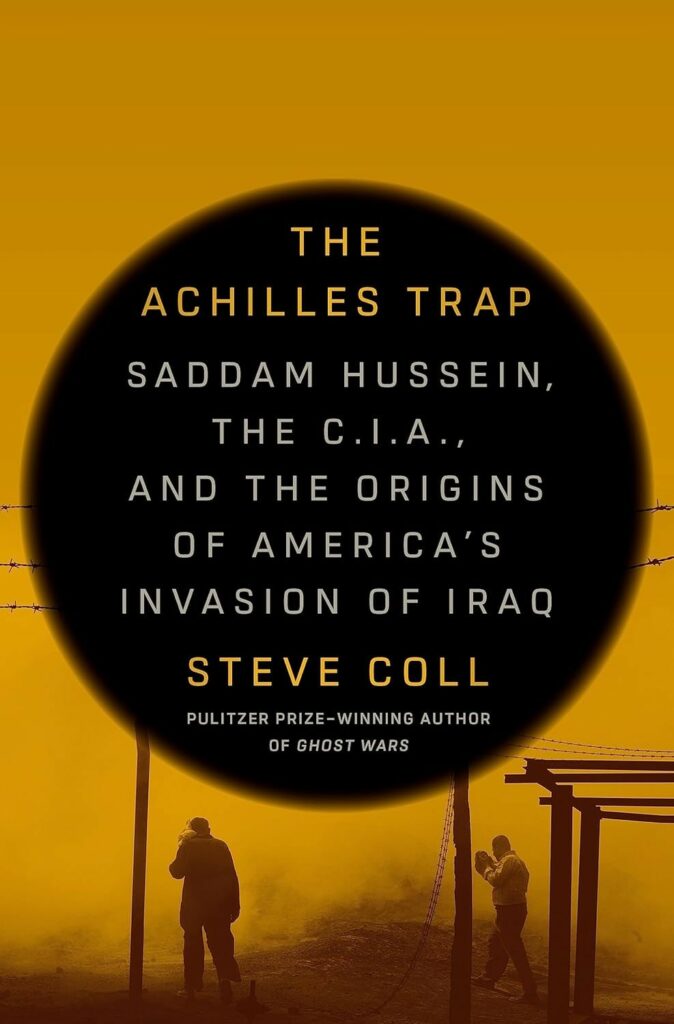I just finished reading “The Achilles Trap: Saddam Hussein, the C.I.A., and the Origins of America’s Invasion of Iraq” by Steve Coll. By the onset of the US invasion and military occupation, I was convinced that (a) Iraq had no WMDs or active WMD programs, and (b) there was no collusion between Saddam and al Qaeda. The idea that Osama bin Laden and Saddam Hussein were allies was facially absurd. Bin Laden was a religious zealot and Hussein was a secular dictator. They were enemies, not allies. And after years of searching, there was not an atom of evidence for Iraqi WMDs or WMD programs after the year 2000. Yet to the Clinton and Bush administrations, absence of evidence simply proved Saddam was hiding them.Coll confirms this, of course, and
Topics:
Joel Eissenberg considers the following as important: history, Iraq war, Saddam Hussein
This could be interesting, too:
Ken Melvin writes A Developed Taste
NewDealdemocrat writes Constitutional Interregnum
Bill Haskell writes Know Nothings
Angry Bear writes Could Elon Musk Take on Healthcare and Healthcare Insurers and Lower Costs?
I just finished reading “The Achilles Trap: Saddam Hussein, the C.I.A., and the Origins of America’s Invasion of Iraq” by Steve Coll. By the onset of the US invasion and military occupation, I was convinced that (a) Iraq had no WMDs or active WMD programs, and (b) there was no collusion between Saddam and al Qaeda.
The idea that Osama bin Laden and Saddam Hussein were allies was facially absurd. Bin Laden was a religious zealot and Hussein was a secular dictator. They were enemies, not allies. And after years of searching, there was not an atom of evidence for Iraqi WMDs or WMD programs after the year 2000. Yet to the Clinton and Bush administrations, absence of evidence simply proved Saddam was hiding them.
Coll confirms this, of course, and brings the receipts. So why did I read this book? Mostly to gain insight into Saddam Hussein and his behavior. To cut to the chase, Hussein was smart but paranoid and insular. After his failed invasion of Kuwait, he destroyed his WMD programs but wanted the world to believe he still had them. Well, everyone but the US. Saddam was convinced that the CIA knew he didn’t have WMDs and so he didn’t believe he was concealing anything from the Clinton and Bush administrations.
On the American side, political considerations drove the endless probing for phantom weapons. In particular, GW Bush came to office committed to deposing Saddam, and just needed the right excuse. With 9/11, he found it. Sadly, of course, the subsequent disbanding of the Iraqi military led directly to the monstrosity that was ISIS/Daesh, as well as the deaths, maiming and dislocation of millions of Iraqis.
Could Saddam have been managed without the US invasion and military occupation? Coll demures on that counterfactual, but the reader can clearly see that the Bush administration was lying about its evidence at the time. Coll is clear about Saddam’s brutality to his fellow Iraqis, particularly the Iraqi Kurds. But in the end, the Bush administration was tolerating similar brutality in Syria and North Korea. He invaded Iraq because he could. It didn’t hurt that he knew he could eventually find Saddam, while bin Laden eluded him, and that the US could control Iraqi oil.
If you’re ambivalent about the (second) Iraq war and unclear about the causes, this is a well-written, informed and unsparing account. Even though it confirmed everything I already knew, I still found this a good read and deep dive into recent history.

